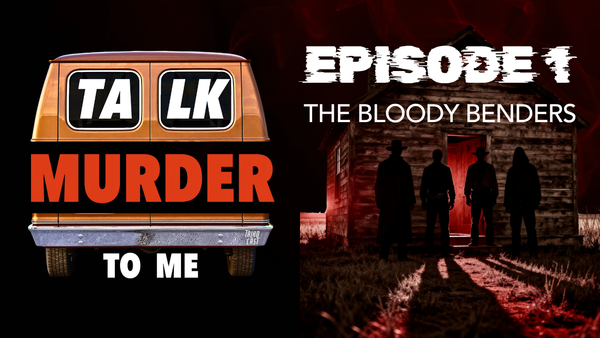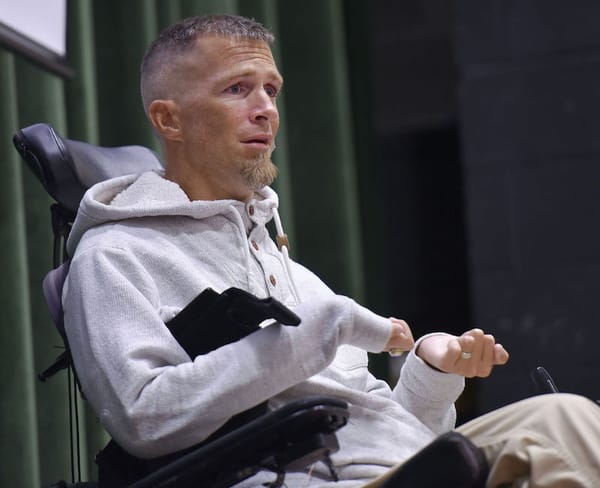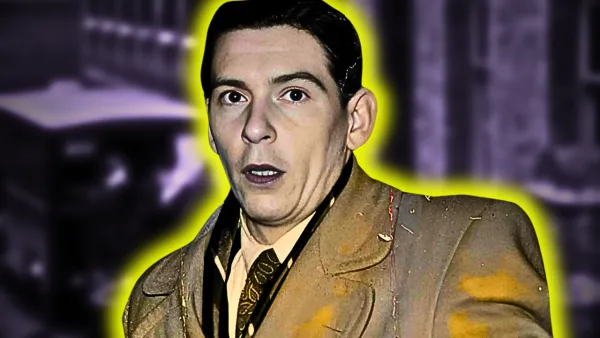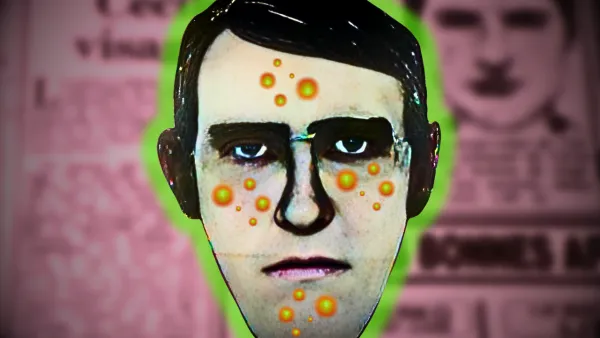“I Hope He’s Dead” - The Shocking Case of Avenging Mother, Marianne Bachmeier, And Her Courtroom Revenge
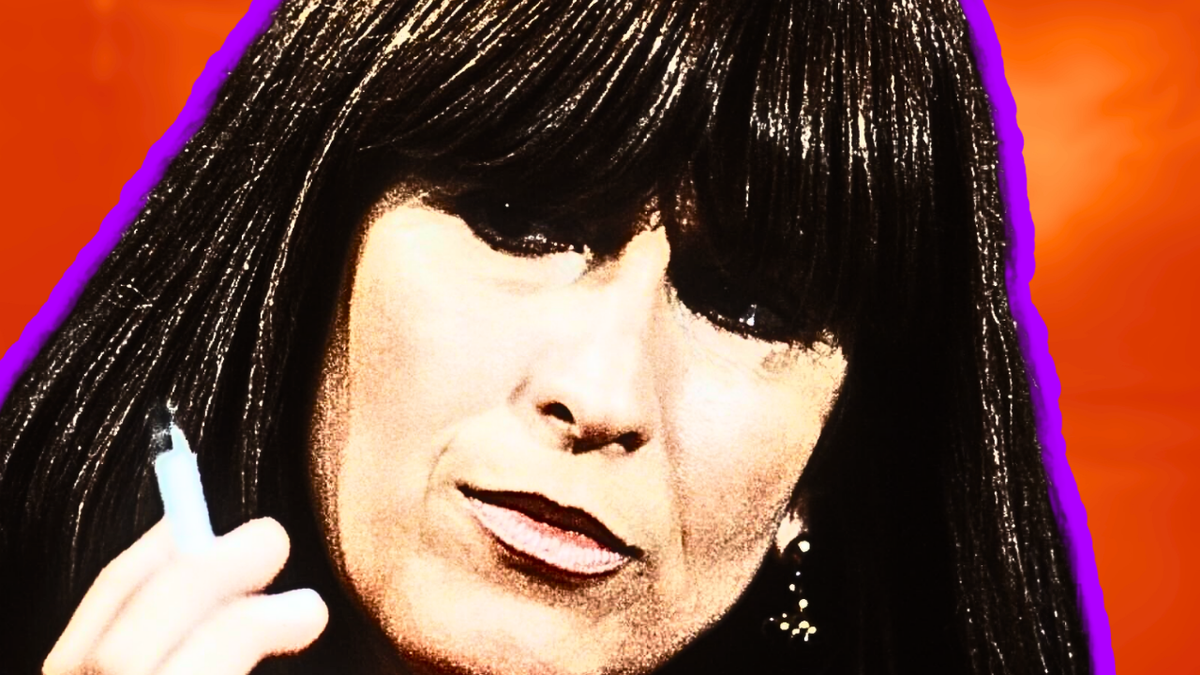
On a tense March morning in 1981, the quiet of a German courtroom was shattered by gunfire. As spectators looked on in horror, a petite dark-haired woman calmly pulled a pistol from her purse and fired eight shots at the back of the defendant - a man on trial for murdering her young daughter. Six bullets found their mark, killing him instantly.

The shooter was 30-year-old Marianne Bachmeier. The man she killed was Klaus Grabowski, the confessed killer of her 7-year-old daughter Anna. In that moment of vigilante justice, Bachmeier became known across Germany as "the avenging mother" - a grieving parent pushed to the edge by an unthinkable loss and a justice system she felt had failed her.
Her shocking act of revenge would spark heated debates about justice, retribution and the lengths a parent might go to avenge their child. It's a story of tragedy compounded by tragedy - of lives destroyed and a mother's all-consuming grief and rage.
A Troubled Past and a Cherished Daughter
Born in 1950, Marianne Bachmeier's early life was marked by hardship and trauma. Her father had been a member of the Waffen-SS during World War II, and like many veterans, struggled to adjust to civilian life. An alcoholic prone to violence, he eventually abandoned the family. Marianne's mother quickly remarried, but her new stepfather proved just as abusive. As a teenager, Marianne rebelled against their strict, oppressive household.
By 16, she was pregnant with her first child. Three years later, while pregnant again, she was raped.Unable to care for them, Marianne gave her first two children up for adoption. But in 1973, at age 22, she gave birth to Anna - the daughter she was determined to keep and raise on her own.Despite her troubled past, Marianne built a life for herself and Anna in the port city of Lübeck.
She ran a local bar called Tipasa, described as having an "open and cheerful" atmosphere that reflected Marianne's personality. Anna was a bright, happy child who brought joy to her mother's life.But their peaceful existence would be shattered on May 5, 1980, when 7-year-old Anna disappeared on her way to school.
A Mother's Worst Nightmare
That fateful morning, Marianne and Anna had argued before the little girl left for school. It wasn't unusual for the strong-willed child to clash with her mother. But on this day, instead of going to class, Anna decided to visit a friend.She never made it there. On her way, Anna was abducted by 35-year-old Klaus Grabowski, a local butcher who lived in the neighborhood. Grabowski was a convicted sex offender with a disturbing history.
In 1971, he had been arrested for attempting to strangle a 6-year-old girl. Months later, he was convicted of molesting two 9-year-old children. After serving time in a psychiatric hospital, Grabowski had voluntarily undergone surgical castration in 1976, claiming he wanted to curb his deviant urges. Two years later, he received hormone treatments to restore his libido. Now, despite these supposed rehabilitative measures, Grabowski had seized another innocent victim.For several agonizing hours, he held Anna captive in his home.
Then, using a pair of pantyhose, he strangled the little girl to death. Afterward, he stuffed her body into a cardboard box and buried it in a shallow grave along a nearby canal. That same evening, Grabowski was arrested after being reported to police by his fiancée. During questioning, he admitted to killing Anna but denied sexually abusing her. Instead, he spun a bizarre tale, claiming the 7-year-old had tried to "seduce" him and then attempted to blackmail him for money.It was an absurd, infuriating lie that only compounded Marianne Bachmeier's grief and rage. Her beloved daughter was gone, murdered by a man who should never have been free to harm another child. And now he was attempting to smear Anna's name and memory.For Marianne, it was more than she could bear.
A Mother's Revenge
In March 1981, nearly a year after Anna's murder, Klaus Grabowski's trial began. As Marianne Bachmeier sat in the Lübeck courtroom, she listened with mounting anger to the defense team's arguments. They claimed Grabowski's crime stemmed from hormonal imbalances caused by his earlier castration and subsequent hormone therapy.To Marianne, it seemed Grabowski might escape true justice for Anna's murder. She later said she feared he would be sent to a psychiatric facility rather than prison.On the third day of the trial, March 6, 1981, Marianne came to court with a loaded Beretta 70 pistol concealed in her purse. As proceedings began, she calmly stood up, drew the weapon, and fired eight shots at Grabowski's back.Six bullets struck their target. Klaus Grabowski slumped forward, dead before he hit the ground.
In the stunned silence that followed, witnesses reported hearing Marianne say, "I hope he's dead." When Judge Guenther Kroeger spoke to her moments later, she allegedly stated: "He killed my daughter...I wanted to shoot him in the face but I only hit his back...I wanted him dead."The shooting lasted mere seconds, but its repercussions would echo through German society for years to come. Marianne Bachmeier had taken justice into her own hands in the most public, shocking way imaginable.
A Nation Divided
News of the courtroom shooting spread rapidly across Germany and beyond. Marianne Bachmeier instantly became a household name, her face splashed across newspapers and television screens.Public reaction was deeply divided. Many, especially fellow parents, expressed support and understanding for Marianne's actions. They saw her as a grieving mother pushed to extremes by an unimaginable loss and a justice system that seemed poised to fail her daughter once again.Others, while sympathetic to her pain, argued that vigilantism could not be condoned in a constitutional democracy.
There were concerns that Marianne's act might inspire copycats or erode faith in the legal system.The case sparked intense debate about justice, retribution, and the lengths to which parental love and grief might drive a person. It also raised uncomfortable questions about Germany's treatment of sex offenders, given Grabowski's history and the ineffectiveness of his supposed rehabilitation.As Marianne awaited her own trial, a support association formed to assist with her legal fees. Within a week, over 100,000 marks had been donated to her defense fund.
The Trial of Marianne Bachmeier
In November 1982, Marianne Bachmeier stood trial for the killing of Klaus Grabowski. Initially charged with murder, prosecutors later reduced the charge to manslaughter.The trial was a media sensation, with film crews from around the world descending on Lübeck to cover the proceedings. Marianne had sold exclusive rights to her story to the magazine Stern for 100,000 marks, using the money to cover her legal costs.
During the trial, disturbing details of Marianne's own troubled past came to light. The image of the grieving mother was complicated by revelations about her first two children and her struggles as a young single parent.Marianne's defense team argued that she had not planned to kill Grabowski, but had brought the gun for self-defense. They claimed she snapped when she overheard Grabowski planned to lie about Anna in court.
Psychologists who examined Marianne painted a picture of a woman deeply traumatized by her daughter's murder and her own difficult life. They argued she was not in full control of her actions when she shot Grabowski.
After 28 days of testimony, the court reached its verdict. On March 2, 1983, Marianne Bachmeier was convicted of manslaughter and unlawful possession of a firearm. She was sentenced to six years in prison.
Life After the Verdict
Marianne Bachmeier served just over three years of her sentence before being released on parole. In 1985, she married a teacher and in 1988 the couple moved to Lagos, Nigeria, where he taught at a German school.Their marriage ended in divorce in 1990, and Marianne relocated to Sicily. There, she found work as an aide in a Palermo hospice.
In the years that followed, Marianne occasionally resurfaced in the media to discuss her case. She never expressed remorse for killing Grabowski. In a 1994 radio interview, and again on a 1995 television talk show, she stated that she had carefully considered her actions, seeing them as a way to "enforce the law" on Grabowski and prevent him from spreading further lies about Anna.
A 2006 documentary revealed that in the months after Anna's murder, Marianne had practiced shooting in the basement of her bar - suggesting her act of vengeance may have been more premeditated than she claimed in court.
A Final Chapter
In the mid-1990s, Marianne Bachmeier received a devastating diagnosis: pancreatic cancer. She returned to Germany as her health declined, allowing a documentary crew to film her final days. She wanted to show the world the lasting impact of losing a child to violence.On September 17, 1996, Marianne Bachmeier died in a Lübeck hospital. She was 46 years old. At her request, she was buried next to her daughter Anna in Lübeck's Burgtor Cemetery.
Legacy and Lingering Questions
More than four decades after that shocking moment in a Lübeck courtroom, the case of Marianne Bachmeier continues to captivate and divide opinion in Germany and beyond.For some, she remains a tragic figure - a mother driven to extremes by grief and a flawed justice system. Others see her as a dangerous vigilante whose actions, however understandable, threatened the very foundations of law and order.
The case raised important questions that still resonate today: How do we balance justice and vengeance? What are the limits of parental love and protection? And how can society better support and protect victims of violent crime and their families?
Marianne Bachmeier's story is a stark reminder of the devastating ripple effects of violence - how a single horrific act can destroy multiple lives and shake a society to its core. It's a tragedy compounded by tragedy, with no true winners and no easy answers.In the end, perhaps the most fitting epitaph for Marianne Bachmeier comes from her own words, spoken near the end of her life: "I am Anna's mother. That is my identity, and it always will be."


